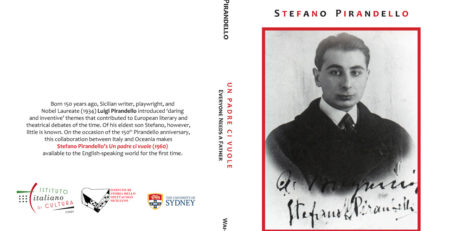Translation, the Internet and the age of social media: rethinking professional translation and training
The world of translation has changed dramatically over the last 20 years, while that of interpreting remains much the same, says Associate Professor Miguel A. Jimenez-Crespo, of Rutgers University, who gave a talk on Translation, the Internet and Social Media at the University of NSW this week.
New technologies are transforming translation practices, and also leading to new directions in translation research and theory. Online communities using social media and other software are today doing translations for money or for free in processes generally known as crowd-sourcing.
People translate for free for a variety of motives. After the earthquake in Haiti in 2010, for instance, phone messages in Haitian Creole were translated by volunteers who also helped geo-locate where the calls or messages originated. Or people might translate for free because they are fans of a particular person, product or service. Jimenez-Crespo said that one of the Harry Potter novels was translated by an online community within 24 hours!
Such a community would of course produce a translation that might be best described as a “sentence salad” or “collage translation”, or at worst, a “train wreck”. It would require intensive editing and rewriting to create such a translation with consistent tone and style. But a community of translators could well provide translations of decent quality, such as (paid or unpaid) fan-subbers who work subtitling films and TV programs.
So far, said Jimenez-Crespo, crowd-sourced translation has had less impact on the translation market than expected. But clients seeking translations today might specify a certain level of quality according to their purposes. So now the definitions of quality in translation range from ultra, superior, professional, basic, to “fit for purpose” and usable enough to get an idea of what the text says, known as “gisting”.
Professor Jimenez-Crespo said that our concepts of translation are constantly expanding as texts are produced by “co-creational users”. The world wide web is more of a social creation than a technical one but there is an ever-deepening relationship between translators and technology. Translators are now often called upon to edit translations done using translation memory, machine translation or crowd-sourced translation. And increasingly, texts themselves are online, dynamic, and time-sensitive. New technology has also introduced new genres of text, such as tweets – which if they are to be translated, would generally have to be translated immediately while an issue is still current among tweeters.
Professor Jimenez-Crespo holds a PhD in Translation and Interpreting Studies from the University of Granada, Spain. He is an Associate Professor in the Department of Spanish and Portuguese, Rutgers University in New Jersey, where he directs the Masters and undergraduate programmes in Spanish – English Translation and Interpreting.



